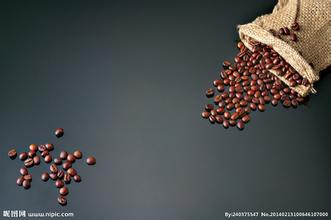Introduction to the characteristics of coffee flavor and taste varieties in Incht Manor, Guatemala
According to the 1986 Constitution, Guatemala has a pluralistic political system. The president is elected by universal suffrage and is the head of state, head of government and commander-in-chief of the armed forces, with the highest executive power of the country. The unicameral National Assembly is the highest legislature of the country. The Cabinet is the executive agency of the government, directly under the leadership of the President and assisted by the Vice President. [13]
Guatemala is a multi-party, independent democratic republic. The Constitution promulgated on 15 January 1986 provides for the separation of legislation (the Guatemalan Congress), law enforcement (the President and Vice-President) and the judiciary (the Supreme Court), belonging to the system of separation of powers. Congressional and presidential elections are held every four years, and all citizens over the age of 18 have the right to vote, while soldiers do not have the right to vote. Congress appoints members of the Supreme Court for a term of four years. The current government of Guatemala was formed in January 2012. The main members are: vice President Rosanna Baldetti, Foreign Minister Harold Cavalieros, Minister of the Interior Maurizio Lopez Bonillia, Minister of Defense Ulisses Noe Soedo Hilone, Minister of Finance Pavel Centrino, Minister of Transport and Infrastructure Guillermo Castillo, Minister of Education Cynthia del Aguila, Agriculture, The Minister of Animal Husbandry and Food Mario Aldana, the Minister of economy and Trade Sergio de la Torre Jimeno, the Minister of Public Health and Social Welfare Ludwig Ovalle, the Minister of Labour and Social Security Carlos Contreras, the Minister of Energy and Mining Eric Estuardo Achira de Essa, the Minister of Culture and Sports Jeronimo Lanserio, Minister of Environment and Natural Resources Luis Armando Zulita Tablada
Guatemala is a presidential republic in Central America, located in the south of the North American continent. It is bordered by the Pacific Ocean to the west, the Caribbean Sea to the east, Mexico to the north and Honduras and El Salvador to the southeast. Coffee was really introduced into Guatemala in 1750 by Father Jesuit, and the coffee industry was developed by German colonists at the end of the 19th century.
Guatemala covers an area of about 108899 square kilometers. The land features can be divided into plateau volcanoes, lowland tropical forests, volcanic sandy shore plains along the Pacific coast, and virgin lands along the Caribbean Sea. The SierraMadre Mountains of Central America, which straddles Guatemala from east to west, covers an area of about 2GP3 and has 34 volcanoes. In this country, rivers and lakes dot the landscape, while equatorial forests and plain jungles cover the land. Today, most of the coffee industry's production takes place in the south of the country, and the abundance of high-quality coffee beans Antigua coffee can be traced back to the Mayan civilization. Due to the eruption of the volcano, the soil here is more nutritious, and the sufficient sunlight and moisture also make the coffee produced excellent quality. Most importantly, the residents here insist on growing Arabica bourbon coffee, although the yield is small, but the texture is better. The residents of Antigua prefer an one-time harvest because they grow coffee in a large area, and use the ancient sun method to remove the skin and flesh of the coffee fruit. People pluck the ripe fruit and the immature fruit together, and even mix the leaves with them and expose them to the sun. Spread out on the ground for such a long time, coffee beans are easy to absorb the miscellaneous smell of the soil, so they often have a strange salty taste. Beginners often can't stand the strange taste, but people who are used to it like it very much. Coffee farmers in Antigua earn very little. But they themselves said: even if they are poor, they are still happy because of coffee.
Here, the slopes of Sierra Madre volcano provide ideal conditions for growing high-quality coffee beans, and coffee growing at high altitudes is full of vitality. Compared with other kinds of coffee, tasters prefer this mixed flavor coffee with spicy flavor. The extra-hard coffee beans here are a rare good coffee with full grains, delicious taste and balanced acidity. In addition, Guatemala has attracted a lot of attention because of its giant coffee beans.
Antigua is a famous producer of coffee. Antigua coffee is produced in Hacienda Carmona, where the best quality coffee is EL Pulcal, which is not only of good quality, but also has a stronger flavor, richer taste and stronger tobacco flavor than other Guatemalan coffee. Every 30 years or so, the area near Antigua is hit by a volcanic eruption, which provides more nitrogen to the already rich land, and plenty of rainfall and sunshine make the place more suitable for growing coffee

Important Notice :
前街咖啡 FrontStreet Coffee has moved to new addredd:
FrontStreet Coffee Address: 315,Donghua East Road,GuangZhou
Tel:020 38364473
- Prev

Introduction of Fine Coffee in the Coffee Flavor and Taste production area of Ladisha Manor
In 1982, the leftist guerrillas of the whole country merged to form the National Revolutionary Union of Guatemala, and armed struggle spread all over the country. Farmers dissatisfied with the overthrow of the Arbens regime organized a guerrilla group in which more than 100,000 people were killed and millions displaced. In September 1982, the persecution of the local Mayans by the Guatemalan army was close to genocide, and more than 9000 Mayans were killed. nineteen
- Next

Kenya Berman Manor Coffee Flavor Taste Variety Production Features Boutique Coffee Introduction
The Kenyan government takes the coffee industry extremely seriously, and it is illegal to cut down or ring coffee trees here. Kenya's coffee buyers are world-class buyers of premium coffee, and no country grows, produces and sells coffee as consistently as Kenya. All coffee beans are first purchased by the Coffee Board of Kenya (CBK), where
Related
- Does Rose Summer choose Blue, Green or Red? Detailed explanation of Rose Summer Coffee plots and Classification in Panamanian Jade Manor
- What is the difference between the origin, producing area, processing plant, cooperative and manor of coffee beans?
- How fine does the espresso powder fit? how to grind the espresso?
- Sca coffee roasting degree color card coffee roasting degree 8 roasting color values what do you mean?
- The practice of lattes: how to make lattes at home
- Introduction to Indonesian Fine Coffee beans-- Java Coffee producing area of Indonesian Arabica Coffee
- How much will the flavor of light and medium roasted rose summer be expressed? What baking level is rose summer suitable for?
- Introduction to the characteristics of washing, sun-drying or wet-planing coffee commonly used in Mantenin, Indonesia
- Price characteristics of Arabica Coffee Bean Starbucks introduction to Manning Coffee Bean Taste producing area Variety Manor
- What is the authentic Yega flavor? What are the flavor characteristics of the really excellent Yejasuffi coffee beans?

